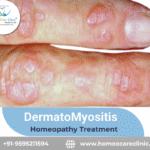Diabetes is a disease that can be acute or chronic, hereditary or acquired. It occurs when blood sugar (glucose) is too high. Diabetes develops when the pancreas doesn’t make enough insulin or when the body doesn’t properly respond to the effects of insulin production.
Diabetes can affect people of all ages.
Most forms of diabetes are chronic (lifelong), and all forms of diabetes are manageable with medications and mental health and lifestyle changes.
diabetes is classified into two main types diabetes mellitus and diabetes insipidus.

NORMAL RANGE
(F)Fasting – 110-130mg/DL
(PP)Post prandial- 140-200mg /dl
More than the above reference range the normal limit may be termed as diabetes or pre-diabetic stage
Glucose is a good source of energy, as it comes from carbohydrates in food and drinks. It’s your body’s source of energy.
Blood carries glucose to all cells of the body for energy.
When glucose is in your bloodstream, it needs help to reach its final destination. So This key is insulin (a hormone). If your pancreas is not making sufficient insulin or your body is not using it properly, glucose builds up in the bloodstream, causing high blood sugar which is known as hyperglycemia.
Over time having consistently high blood glucose levels can cause health-related issues, such as heart disease, nerve damage, and eye issues.
The Scientific and technical name for diabetes is diabetes mellitus.
Another diabetic condition that shares the term “diabetes” is diabetes insipidus but they’re distinct.
They share only the name “diabetes” because they both cause increased thirst and frequent urination.
Diabetes insipidus is much rarer than diabetes mellitus.
When glucose is in your bloodstream, it needs help from a hormone to reach its final destination. This hormone is insulin. If your pancreas isn’t making enough insulin or your body isn’t using it properly, glucose builds up in your bloodstream, causing high blood sugar (hyperglycemia).
For a very long time, having consistently high blood glucose levels can cause health-related problems, like heart disease, nerve damage, and eye issues.
What are the types of diabetes?

There are several types of diabetes. The most common forms include:
Type 1 diabetes:

This type is an autoimmune disease in which your immune system attacks and destroys insulin-producing cells in your pancreas for unknown reasons. Up to 10% of people who have diabetes have Diabetes Mellitus and It’s usually reported in children and young adults, but it can develop at any age.
Gestational diabetes: This type develops in some people during the period of pregnancy. Gestational diabetes usually goes away after pregnancy. However, if you have gestational diabetes, you’re also at a higher risk of developing diabetes insipidus later in your life.
Other types of diabetes include:
Diabetes insipidus or Type 2 diabetes: in this type of Diabetes, your body does not make sufficient insulin, and/or your body’s cells don’t respond normally to the insulin (insulin resistance). This is the most common type of diabetes. It mostly affects young people, but children can also have it
Prediabetes: This type is the stage before Type 2 diabetes (diabetes insipidus). Your blood glucose levels are higher than normal but not sufficient to be officially diagnosed with diabetes insipidus.

Type 3 diabetes: This form of diabetes happens when your pancreas experiences damage (other than autoimmune damage), which affects its ability to produce insulin. Pancreatitis, cystic fibrosis, and hemochromatosis can all lead to pancreas damage that can cause diabetes. Having the pancreas removed (pancreatectomy) also results in Type 3 diabetes.
Latent autoimmune diabetes in adults (LADA):
Like diabetes mellitus, LADA also results from an autoimmune reaction, but it develops much more slowly than diabetes mellitus. People who are diagnosed with LADA are usually over the age of 30 years.
Maturity-onset diabetes:
of the young once (MODY):
MODY, also called monogenic diabetes, happens due to inherited genetic mutations that affect how your body produces and uses insulin. There are currently over 10 different types of MODY. It affects more than 5% of people with diabetes and commonly runs in families with genetic diseases.
Neonatal diabetes:
This is a rare form of diabetes that occurs within the first six months of life. It’s also a form of monogenic diabetes. About 50% of infants with neonatal diabetes have the lifelong form known as permanent neonatal diabetes mellitus.
For the other half, the condition disappears within a few months from onset after birth, but it can come back later in life.
This is called transient neonatal diabetes mellitus.
Brittle diabetes:
Brittle diabetes is a form of diabetes mellitus that’s marked by frequent and severe episodes of high and low blood sugar levels. This instability often leads to hospitalization.
In other rare cases, a pancreas transplant may be required to permanently treat brittle diabetes.
Symptoms of Diabetes Mellitus:

- Always feeling hungry
- Always feeling thirsty
- Frequent urination.
- Lethargic
- Fatigue.
- Blurred vision.
- Unexplained weight loss.
- Numbness or tingling in your hands or feet.
- Slow-healing sores or cuts.
- Wounds won’t heal
- Frequent skin and/or vaginal yeast infections.
What are the Causes of Diabetes Mellitus?

- Too much glucose level circulating in your bloodstream which causes diabetes,
- Improper Function of insulin
- Hormonal changes in the body
- Overweight or obese
- Lack of exercise
- Family history of diabetes
- Having pre-diabetes Symptoms
- Having high blood pressure issue
- Taking certain medications, such as steroids and hormonal pills, for a long time
- Eating a diet high in red meat, processed meat, and sugar-sweetened beverages
What are the Risk Factors for Diabetes Mellitus?

- Old Age of more than 40 years
- Sedentary lifestyle
- Recurrent High blood pressure
- Gestation Diabetes
- Impaired Glucose tolerance
- High BMI level
- Family history
Complications of Diabetes Mellitus:
If not well-controlled, diabetes mellitus can cause complications affecting major organs of the body, such as:
- Heart problems and blood vessel diseases
- Nerve damage
- Both Kidney damage
- Both Eye damage
- Both Foot damage
- Skin and mouth infections
- Pregnancy-related complications
Best Homoeopathic Medicines for Diabetes Mellitus:

Homeopathy gives remarkable results in mild to severe cases of Diabetes Mellitus In the worst condition of Diabetes Mellitus and progressive conditions Homeopathy helps to manage the symptoms. Homeopathy medicine for Diabetes Mellitus helps to manage all symptoms as well as BSL fasting and Postprandial.
- Type 1 diabetes is an autoimmune disease that cannot be cured, but it can be managed well with homeopathic treatment. Symptoms and blood sugar levels (BSL) can be controlled.
- Diabetes can slow down a child’s physical growth, but homeopathic medicines can help maintain it. Diabetes can also affect a child’s mental health, causing behavioral changes, irritability, and stress due to dietary restrictions and other complaints.
- Homeopathic medicines can address these issues too. Moreover, diabetes makes children more prone to adapt to recurrent infections, but homeopathy can boost overall immunity and protect children from this kind of infection.
Homeopathic Medicines for Diabetes Mellitus
Click here to order your medicine
- Syzygium Jambolanum: This remedy has an immediate effect on increasing blood sugar levels, leading to glycosuria (sugar in the urine). It is helpful for great thirst, weakness, and emaciation, producing large amounts of urine with high specific gravity. It can also aid in treating old skin ulcers and diabetic ulceration.
- Arsenicum Album: Known for alleviating great thirst and emaciation. It is particularly useful when there is sudden and extreme dryness of the mouth and marked physical restlessness, often accompanied by dark, watery stool.
- Acetic Acid: Used for diabetes with great thirst and debility. It is effective when there are large amounts of pale urine, causes distress from cold drinks, and vomiting after every kind of food. It also addresses diminished skin sensitivity and profuse, cold sweat.
- Phosphoric Acid: Beneficial for young people who grow rapidly and are mentally or physically overtaxed. It addresses symptoms following the consumption of sour foods and drinks. It is helpful for frequent, profuse, watery, milky urine and frequent nighttime urination. Click here to order your medicine
Diabetes Diagnosis:-
- Do BSL fasting Normal range 70–100
- And pp post prandial normal range 100 –120
- HBA1c normal range 5.8
Diet Chart For Diabetes Mellitus
https://www.homeocareclinic.in/diet-for-diabetes/
FAQS:-
- Can Diabetes Type 1 be cured by Homeopathy?
Ans:- In homeopathy Diabetes, type 1 is curable because in homeopathy we work on the root, take proper patient conflict, and after that prescribe medications.
- Can Homeopathy medicine stop the insulin intake in Diabetes Mellitus?
Ans:- Homeopathy medicine removes all symptoms of Diabetes type 1 and yes also stops insulin intake because it stimulates the pancreas to work and after that, the pancreas produces the insulin.
- What is the main concern of diabetes?
Diabetes can damage the blood vessels in the heart, eyes, kidneys, and nerves. People with diabetes have a higher risk of health problems including heart attack, stroke, and kidney failure. Diabetes can also cause permanent vision loss by damaging blood vessels in both eyes.
- What every diabetic should know?
Changes in your daily lifestyle, like increasing physical activities and making healthy eating choices, are the most important ways to treat diabetes, especially diabetes insipidus. Counting the carbohydrates in your meals, for example, should become routine as carbohydrates contribute to high blood sugar levels.
In conclusion, Homeo Care Clinic offers a holistic approach to treating the disease. The remedies mentioned above can treat the underlying causes of the condition and offer relief from the discomfort. However, it is important to consult a qualified homeopathic practitioner for the correct dosage and duration of treatment. Homeo Care Clinic provides comprehensive care for various ailments and offers customized treatment plans based on individual requirements.
To schedule an appointment or learn more about our treatment, please visit our website or give us a call +91 9595211594 Our friendly staff will be happy to assist you. If you’re searching for the best homeopathy doctor, we are here to help.
Follow us on Facebook, Twitter, and Instagram for valuable insights into the world of homeopathy and holistic health.
Facebook – https://www.facebook.com/homeocareclinicpune
Instagram – https://www.instagram.com/homeocareclinic_in
Website – https://www.homeocareclinic.in
Chat with the best homeopathic doctor privately
If you have any queries regarding your disease or any symptoms, Click to send a WhatsApp message. Our best homeopathy Dr will be happy to answer you.
Book an Appointment
If you want to visit our clinic, Click to book an appointment.
Online treatment
If you are a busy professional, or you are living in a remote town or city, with no best homeopathic doctor near you, Click to start an online homeopathic treatment with the world’s exclusive, most experienced, and best homeopathic clinic, managed by Dr. Vaseem Choudhary world-renowned homeopathic doctor expert.
Testimonials of Diabetic mellitus patient Cured by Homoeopathy:
https://www.homeocareclinic.in/case-study-diabetic-patient-cured-by-homeopathydiabetes-mellitus/






